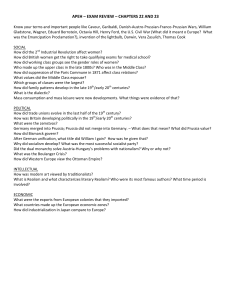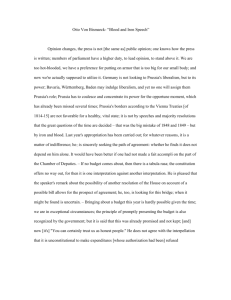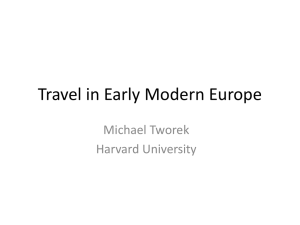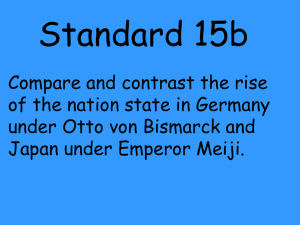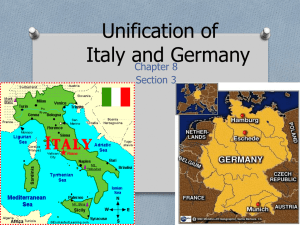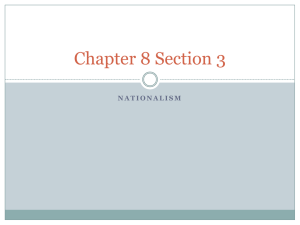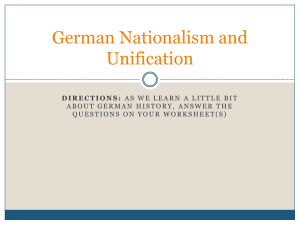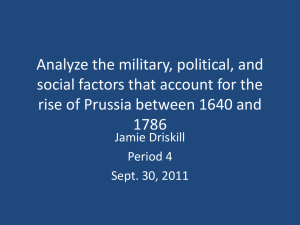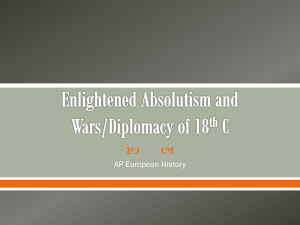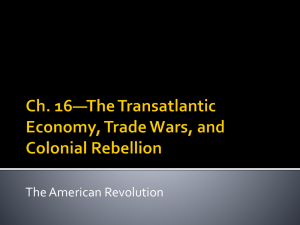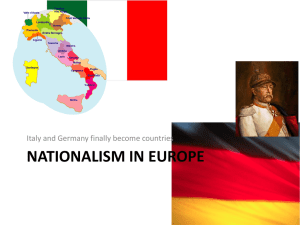Nationalism - Mr. Zittle`s Classroom
advertisement
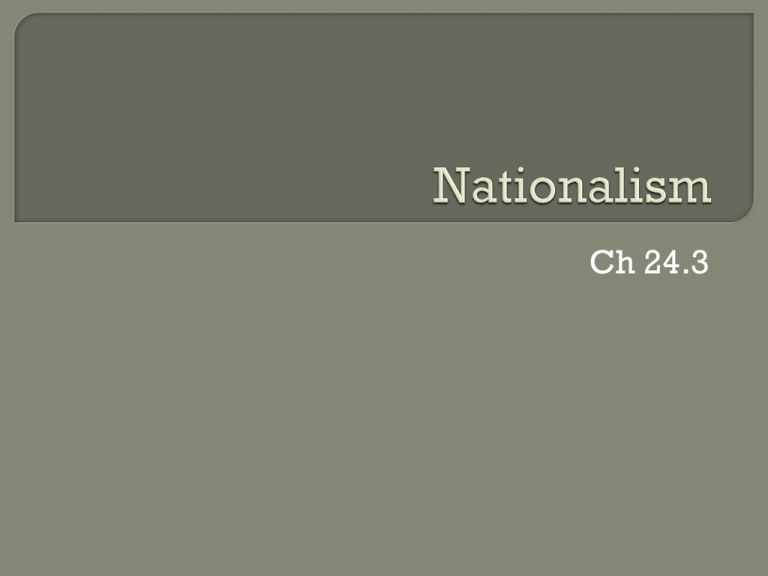
Ch 24.3 A. B. C. D. Russia Prussia Japan France A. B. True False A. B. C. D. Restore the balance of power Restore monarchs to their thrones Limit power of the kings Prevent future French aggression A. B. C. D. One’s Greatest loyalty should not be to a king One’s greatest loyalty should be to a nation of people The nation of people should have a common culture All of the above 44b - compare and contrast the rise of the nation state in Germany under Otto von Bismarck, Italy under Camillo Cavour, and Japan under Emperor Meiji What is nationalism? How did it affect Germany and Italy? What was its long term effect in Europe? What is it? • Most important movement of the 19th Century Camillo di Cavour – Prime Minister of Piedmont-Sardinia Giuseppe Garibaldi – leader of the Red Shirts, a nationalist movement in Southern Italy A. B. C. D. Garibaldi Otto Von Bismark Metternich Camillo di Cavour A. B. C. D. Separation Unification Constitutionalism State Building King of Prussia, Wilhelm I, appoints Otto Von Bismarck as Prime Minister • Realpolitik – politics of reality • Ruled without the consent of Parliament “The position of Prussia in Germany will not be determined by its liberalism but by its power ... Prussia must concentrate its strength and hold it for the favourable moment, which has already come and gone several times. Since the treaties of Vienna, our frontiers have been ill-designed for a healthy body politic. Not through speeches and majority decisions will the great questions of the day be decided - that was the great mistake of 1848 and 1849 - but by iron and blood. “ Event/Feature Common German language in Prussia Riots in Berlin Liberal Parliament refused Wilhelm I money for reforms Prussia and Austria form an alliance and go to war with Denmark Seven Weeks’ War Franco-Prussian War King Wilhelm I crowned Kaiser Result Event/Feature Result Common German language in Prussia Nationalism unified Prussia Riots in Berlin Forced a liberal constitution for kingdom Liberal Parliament refused Wilhelm I money for reforms Wilhelm I chooses conservative Junker as Prime Minister Prussia and Austria form an alliance and go to war with Denmark Increased national pride; split new territory with Austria Seven Weeks’ War Prussia takes control of Northern Germany; eastern/western parts of Prussian Kingdom joined; remaining states of north joined North German Confederation (dominated by Prussia) Franco-Prussian War Nationalistic fever seized the south King Wilhelm I crowned Kaiser Second Reich Established (Holy Roman Empire was first. A. B. C. D. Mercantilism Monroe Doctrine Realpolitik Marxism A. B. C. D. The strong should eat the weak A ruler should never go against parliament Military force should be used for political gain Creating “events” that lead to war is okay as long as it achieves a worthy goal A. B. C. Unification Separation State buiding Is nationalism good or bad?
